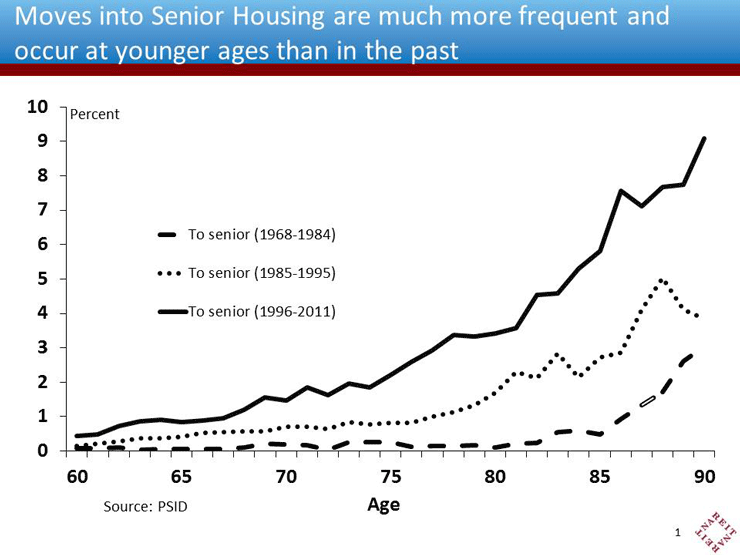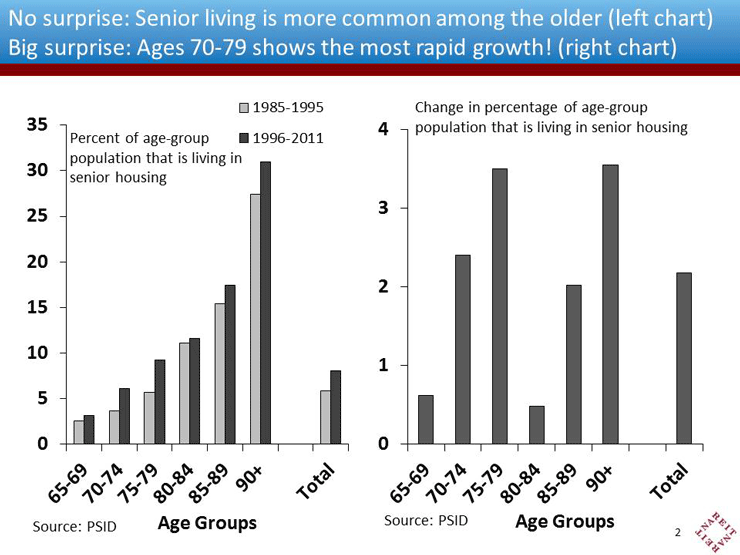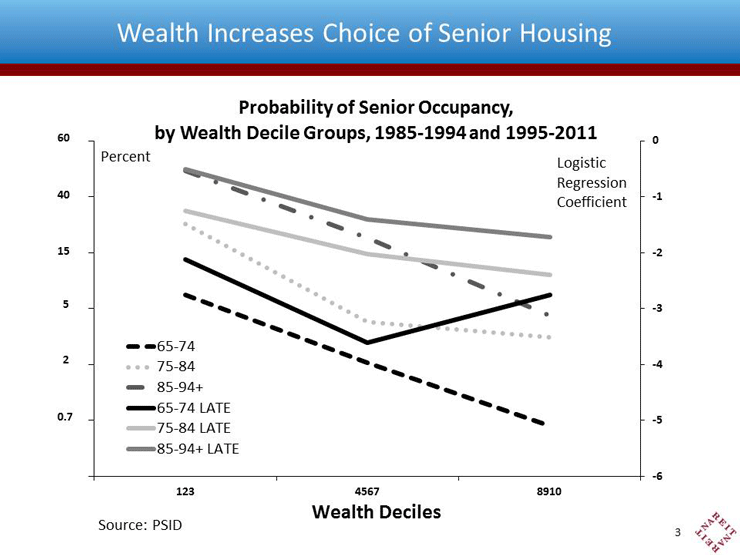At each phase of their lives, the Baby Boom generation has had a major impact on American society. The hula hoops and bell bottoms are long gone, and the next major issue will be how the Baby Boomers retire. Of particular interest for real estate is what impact this will have on demand for senior housing, and when will it start to be felt?
A generation or two ago, moves to senior housing typically meant a nursing home, and didn’t often occur until one was in their 80s, or older. This would suggest the Baby Boom’s impact is more than a decade away. But senior housing today is much different than it was 40 years ago.
Health care REITs are significant players in the senior housing sector. NAREIT economists recently completed a study of the demographic and financial determinants of housing choices of older Americans, and how they have changed over the past several decades. As the senior housing sector has grown, it has offered an increasing diversity of choices for seniors. The move to senior housing has become, for many older Americans, a choice of lifestyle rather than a move based on medical or nursing needs.
The relationship between wealth and choice of housing has undergone a significant change in recent decades. In the early years of our study, greater wealth allowed for “aging in place” and a lower likelihood of living in senior housing. More recently, however, higher wealth has become associated with increased senior living. Underlying this change is a shift in the mix of senior facilities, from predominantly those focused on medical needs and skilled nursing to newer retirement communities with a higher level of non-medical services, activities and amenities.
These trends suggest that the aging Baby Boom generation’s effects on senior living communities may extend beyond those merely related to its size. With a large number of high-wealth individuals in the Baby Boom generation, demand for high-end retirement communities may experience a particular rise in the years ahead. The age at which older Americans move into a senior facility has shifted forward over the past two generations, and the front edge of the Baby Boom generation will soon be approaching the age range when moving to a senior community becomes a realistic consideration.
Download the research study - Demographic and Financial Determinants of Housing Choice in Retirement and the Rise of Senior Living


